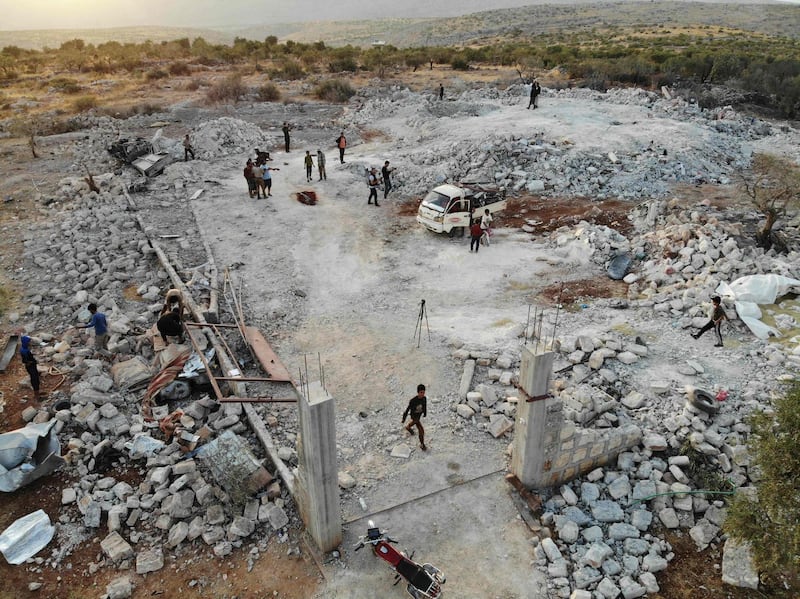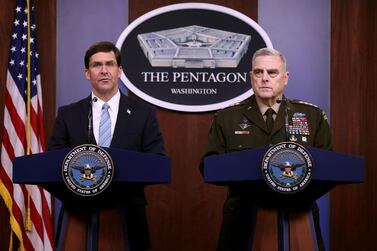The US received help from Iraqi intelligence to pinpoint the safe house of ISIS leader Abu Bakr Al Baghdadi, but it was also getting intelligence from a source closer to the elusive militant chief: a Syrian Kurdish informant who breached his inner circle.
The source managed to gain the trust of the ISIS leader, according to senior Syrian Kurdish officials, learning key details about his hiding place, who he was protected by, where he would be on the night of the US raid and where he may flee to if he escaped.
Polat Can, a senior adviser to the Kurdish-led Syrian Democratic Forces, published details of the intelligence work that led to the US special forces raid in which the ISIS founder was killed.
"Since 15 May, we have been working together with the CIA to track Al Baghdadi and monitor him closely," he said.
"Al Baghdadi changed his places of residence very often," Mr Can said, adding that the informant managed to reach the house where the ISIS chief was believed to be hiding.
"Our own source, who had been able to reach Al Baghdadi, brought Al Baghdadi's underwear to conduct a DNA test and make sure that the person (100%) in question was Al Baghdadi himself," the adviser tweeted.
He said the US raid in the north-western province of Idlib was largely the result of SDF intelligence work, although Turkey's offensive against the Kurds launched on October 9 delayed the operation.
"Our intelligence source was involved in sending co-ordinates, directing the airdrop, participating in and making the operation a success until the last minute," Mr Can said.
US President Donald Trump, who announced the death of the world's most wanted man on Sunday, thanked Syrian Kurdish forces "for a certain support they were able to give us", but did not elaborate.
Trump said a DNA field test had confirmed Al Baghdadi's identity, and he also thanked Turkey, Iraq, Syria and Russia for their co-operation.
The Pentagon said on Monday that Al Baghdadi's body had been disposed of at sea.






